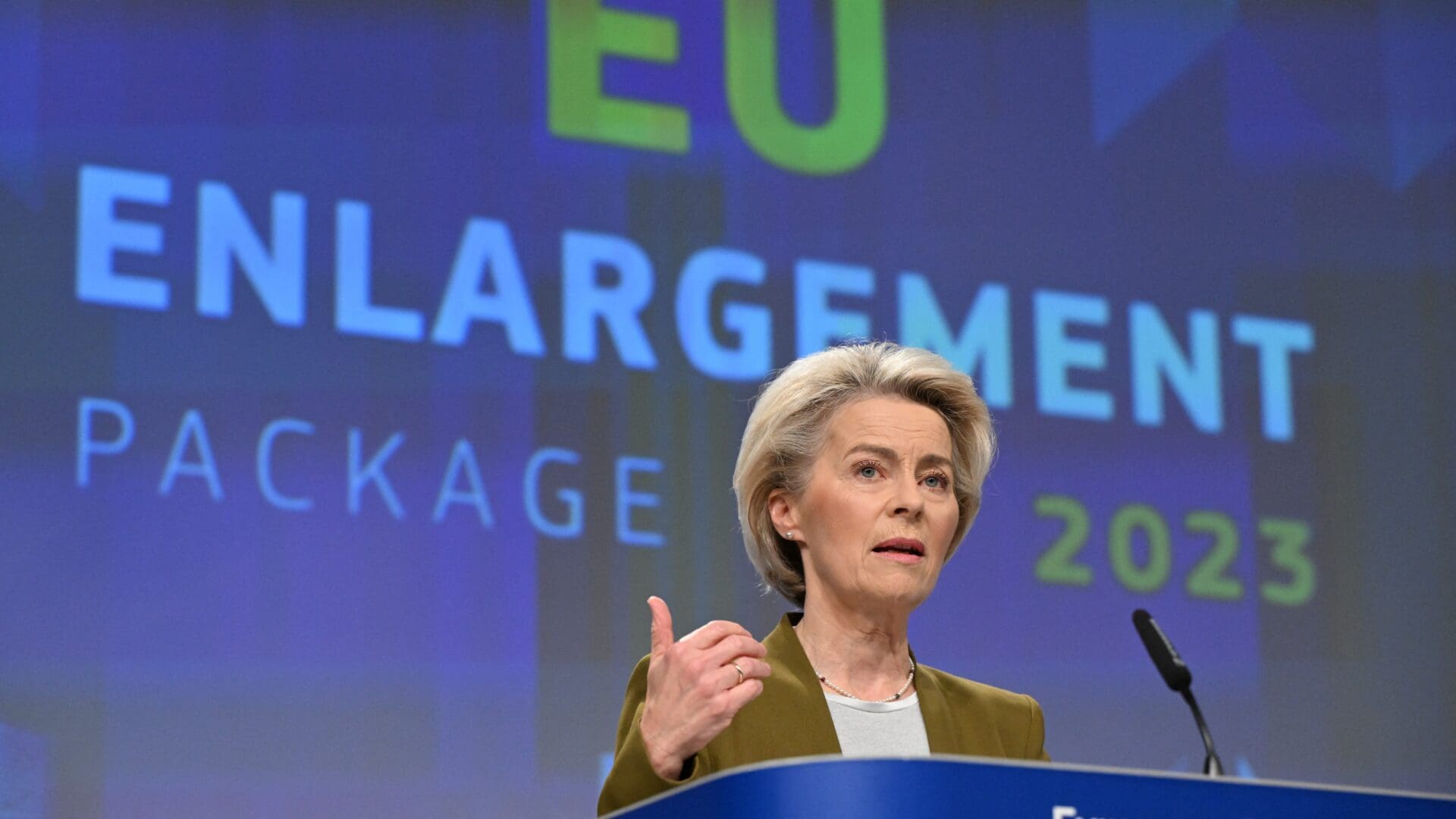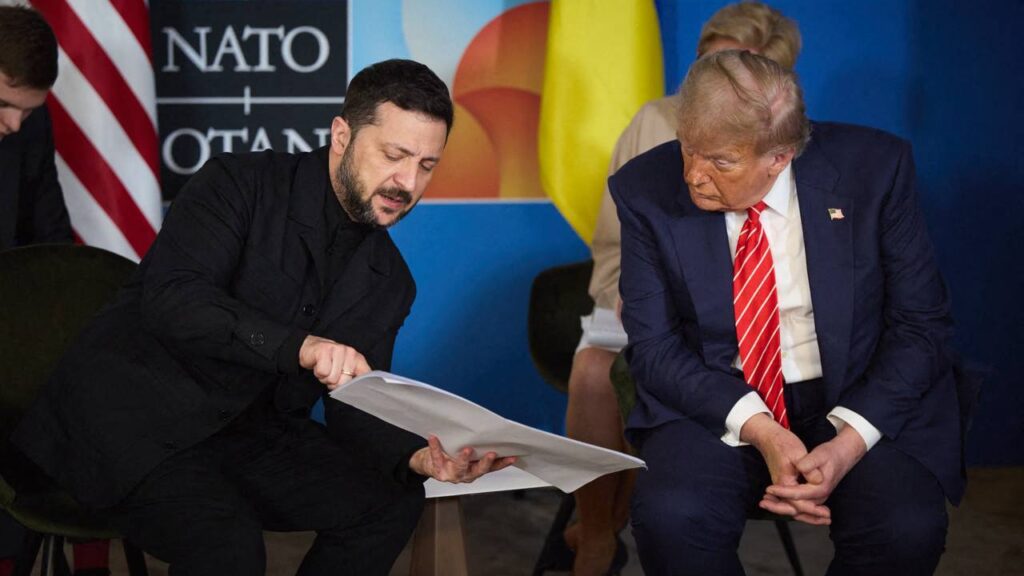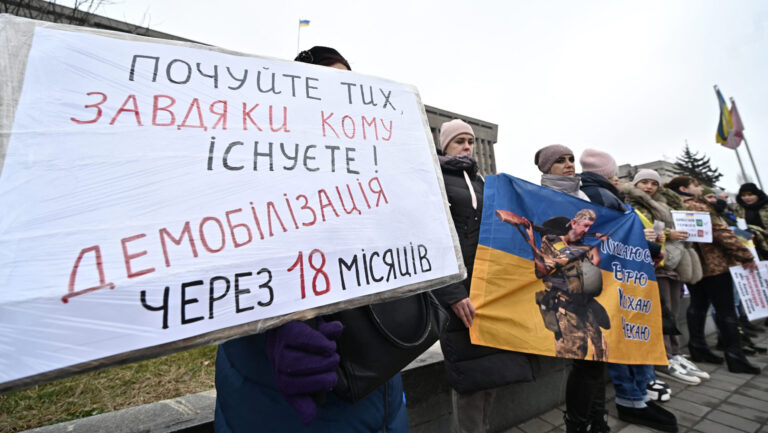The European Commission (EC) proposes starting accession negotiations with Ukraine and Moldova, and recommends granting candidate status to Georgia, announced the President of the European Commission in Brussels on Wednesday.
Ursula von der Leyen, presenting the report on the expected reforms for the EU accession of Ukraine, Moldova, and Georgia, as well as the accession prospects for the Western Balkans and Turkey, stated that the European Commission also recommends initiating accession negotiations with Bosnia and Herzegovina as soon as the country reaches the required level of compliance.
EU enlargement is the driving force for long-term stability, peace, and prosperity across the continent. EU membership is a geostrategic investment in a strong, stable, and united Europe based on shared values. It is an effective tool to promote democracy, the rule of law, and respect for fundamental rights. EU membership prospects are the main driving force for credible, merit-based transformations, von der Leyen emphasized.
Regarding Ukraine, she underscored that the country has proven its ability to make progress towards EU standards even during times of war. The decision to grant candidate status has given momentum to reforms despite the war initiated by Russia. Ukraine has reformed its judiciary, improved results in corruption investigations and judgments, and made progress in efforts to manage the influence of oligarchs, the Commission President remarked. Negotiations with Ukraine could officially begin when Kyiv fulfils the remaining conditions related to
enhancing the fight against corruption, adopting a law on lobbying in line with EU standards, and strengthening the protection of national minorities,
she added.
Concerning Moldova, the president highlighted that the country has launched a comprehensive judicial reform, reformed its anti-corruption bodies, increased the number of investigations and judgments in corruption cases, enacted laws on public procurement reform, adopted an action plan to reduce the influence of oligarchs, and introduced new legislation to help combat organized crime. However, Moldova still needs to implement numerous reforms before determining the date for the start of accession negotiations.
Regarding Georgia, she stressed that the country has taken steps to strengthen EU cooperation and accelerate reforms. Establishing a strong, cross-party political consensus would contribute to managing polarization and accelerating the path to European integration.
The Commission President stated that Bosnia and Herzegovina was granted candidate status in December last year, providing momentum to the country. However, further efforts are needed for the adoption of judicial and rule-of-law reforms, as well as the promotion of constitutional and electoral reforms. The president of the European Commission considered it essential to preserve the constitutional order in the country, stating that the ‘separatist and authoritarian’ measures introduced in the Bosnian Serb Republic are ‘inconsistent with the EU path.’ She proposed initiating accession negotiations with Bosnia and Herzegovina when the country reaches the necessary level of compliance with membership criteria.
Ursula von der Leyen stated that Serbia continues to implement reforms to facilitate its EU accession, especially in the field of the rule of law. However, Serbia needs to improve its alignment with the EU’s common foreign and security policy, considering restrictive measures and statements against Russia. She emphasized the importance of Serbia cooperating and taking all necessary steps to ensure accountability for the violent attacks against the Kosovo Police on 24 September and the attack against KFOR on 29 May. Regarding Kosovo, concerning the normalization of relations with Serbia, she said that neither Serbia nor Kosovo started implementing their own obligations, which are mandatory for both parties and are a key part of their European path.
She highlighted that Turkey remains a key partner for the EU, but accession negotiations have been at a standstill since 2018 in line with the decision of the European Council. While Turkey has not shown a negative trend of distancing itself from the EU, it has made limited progress in reforms related to accession.
Olivér Várhelyi, the European Commissioner for Neighbourhood and Enlargement, announced at the press conference that the European Commission will propose a new growth plan for the Western Balkans, including six billion euros (approximately 2,400 billion HUF) in non-repayable support and loans to accelerate economic convergence with the EU.
The growth plan for the 2024-2027 period aims to make the benefits of membership available in the region even before accession, boost economic growth, and accelerate social and economic convergence. Payments will only be made after the completion of accepted reforms, he added.
Hungary is one of the strongest advocates for the eastward expansion of the EU, pushing in particular for the integration of the Balkan countries. While the EC proposal regarding Moldova is something the Hungarian government will no doubt support,
the case of Ukraine is more complicated, as Hungary has serious concerns regarding the treatment of its ethnic minority community
by the Kyiv government. Budapest’s views also differ from those of the Commission President regarding the Bosnian Serb Republic and Serbia, having a close and friendly relationship with especially the latter.
Related articles:








